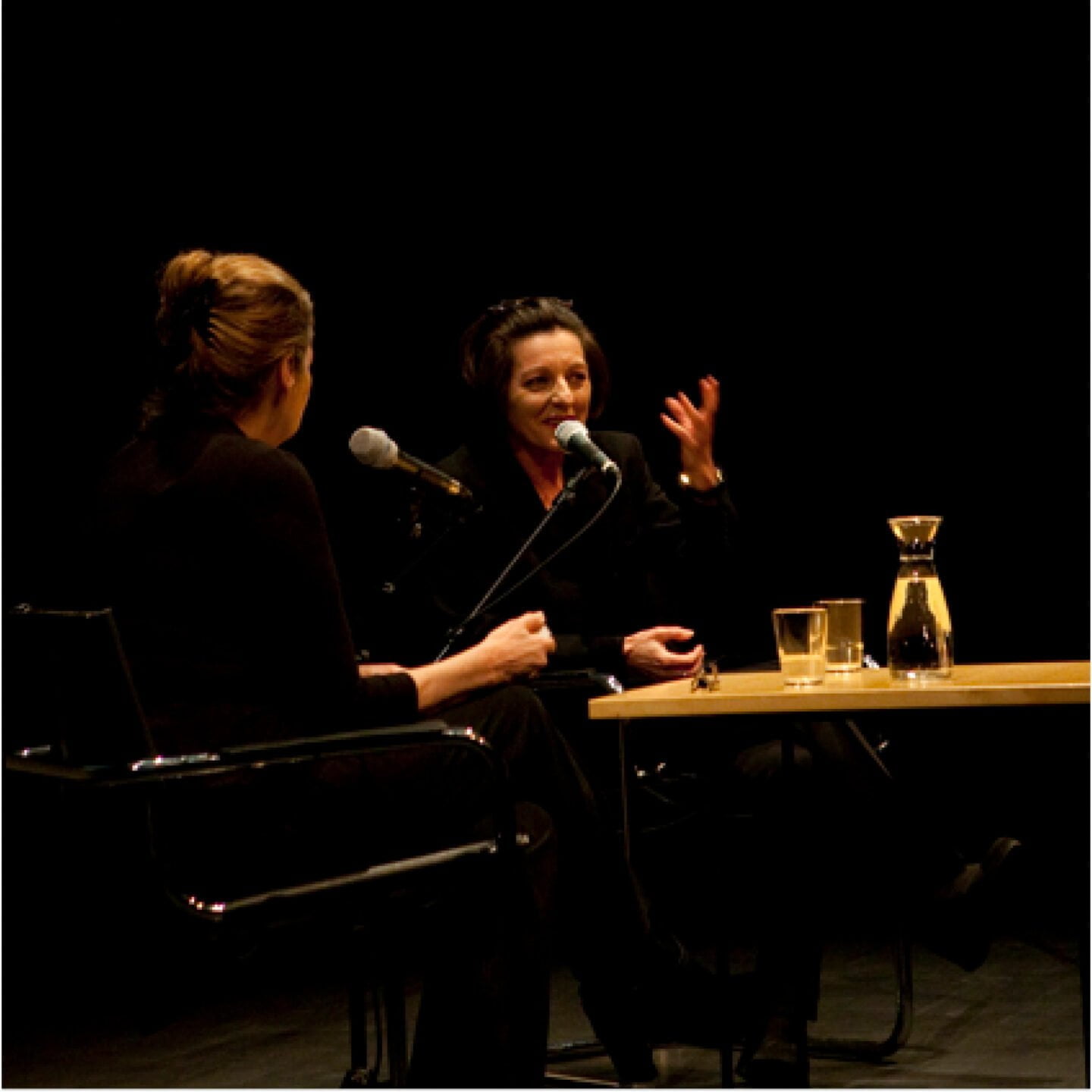
Herta Müller
- Germany, Romania
- Zu Gast beim ilb: 2002, 2012, 2016, 2022
Herta Müller was born in 1953 in Nitzkydorf in the Banat region of Romania and grew up as part of the German-speaking minority there. She studied German and Romanian literature in Timisoara and initially worked as a translator. Because she refused to cooperate with the Romanian Securitate secret service, she was dismissed. Her entry into the writing profession was also made difficult. Her debut »Niederungen« [1982; Eng. »Nadirs«, 1999], which depicts the life of the Banat Swabians in Romania, was heavily censored; after she applied to leave the country, she was banned from traveling and publishing. In 1987, Herta Müller moved to the Federal Republic of Germany. She subsequently took on numerous guest lectureships and was a writer in residence at various international institutions.
Herta Müller is considered one of the most important contemporary writers. In her works, she repeatedly circles around the effects of the communist dictatorship on the individual and describes people who, deprived of their dignity, live in fear. One example of this is her most successful novel to date, »Atemschaukel« [2009; Eng. »The Hunger Angel«, 2012], which describes the deportation of a young man – a character based on the poet Oskar Pastior, who died in 2006 and with whom Herta Müller was a close friend – to a Soviet labor camp. The novel refers to the fate of tens of thousands of Romanian Germans, including Herta Müller’s mother, who were deported to the USSR in January 1945 to perform forced labor. »With its dense network of motifs, the novel creates an intensity and presence that have no equal in contemporary German-language literature. A manifesto of memory and language, whose complex relationship it bears poignant witness to. A masterpiece«, was the verdict of Michael Lentz in the »FAZ«.
In the year of its publication, Herta Müller was awarded the Nobel Prize for Literature. Her autobiographically tinged novel »Herztier« [1994; Eng. »The Land of Green Plums«, 1996], about four young Romanians trying to escape the Ceaușescu regime in the 1980s, and »Mein Vaterland war ein Apfelkern« [2014; tr: My Homeland was an Appleseed], in which Herta Müller describes her own life journey in conversation with Angelika Klammer, also received much positive feedback. The »NZZ« pointed out that »As in Herta Müller’s narrative books, her language, with its idiosyncratic, precise formulations and images in which imagination and reality are one, can also be found here.«
The author is also known for her collages, for which she assembles words and images cut out of newspapers and magazines in postcard format. Her most recent publication was »Der Beamte sagte« [2021; tr: The Civil Servant Said], an entire narrative created in this way.
In 2022, Herta Müller was admitted to the Order Pour le mérite for Sciences and Arts. She lives in Berlin.
Date: 2022
Niederungen
Kriterion
Bukarest, 1982
Herztier
Rowohlt
Reinbek, 1994
Atemschaukel
Hanser
München, 2009
Mein Vaterland war ein Apfelkern
Hanser
München, 2014
Der Beamte sagte
Hanser
München, 2021
